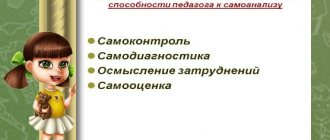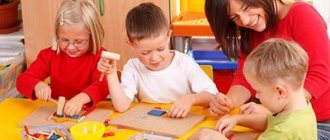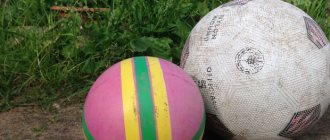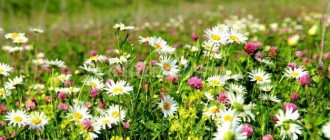Self-education plan for senior group teacher V.I. Mayorova.
Content
| Term | Subject | The content of the work | Practical solution |
| September b 2015 | Selection and study of literature on the topic, didactic games and exercises; plot paintings. Attending advanced training courses according to the Federal State Educational Standard. | Memo for parents on learning coherent speech. Writing the final project. | |
| October | Work on composing stories based on plot pictures. Compilation of the story “Autumn”. | Teach children to look at a picture and highlight its main characteristics. Learn to compose a story based on the teacher’s example. | Thematic lesson “Hello, autumn!” |
| November | Games and exercises for the development of coherent speech. Learning the didactic game “Who am I”? | Improve speech hearing, strengthen expressive speech skills and communicative qualities of a preschooler. | Introduce parents to games that influence the development of children's speech. Consultation for parents “Speech games and exercises in the development of a child’s speech.” |
| December | Development of speech through theatrical activities. Dramatization of the fairy tale "Teremok" | Development of creative independence, aesthetic taste in conveying an image, revealing the creative abilities of children. | Practical demonstration. |
| January 2016 | Work on composing riddles. | Show the role of riddles in the formation of expressive speech. Learn to solve riddles. | Consultation for parents “Using riddles as a means of expressive speech.” |
| February March | Writing a descriptive story (describing animals) Reading and discussion, retelling fairy tales. | Expand children's vocabulary by practicing describing objects according to a diagram. , Teach your child to listen carefully to a fairy tale, answer questions, and consolidate communication skills. Activate speech. | Conversation with parents “The role of descriptive storytelling in expanding children’s vocabulary.” Consultation for parents “The role of fairy tales in the development of children’s emotionality.” |
| April | Learning counting rhymes, tongue twisters, nursery rhymes with children. | Strengthen your expressive speech skills and improve your speech. | Memo for parents “Level of speech development 4-5 years old.” |
| May | Report on the topic of self-education. | Speech at the teachers' meeting. |
Topic : Development of coherent speech in preschool children (middle group)
Relevance of the topic
: This topic is important to me because a child’s speech is a key moment in his development. The success of pupils in coherent speech ensures in the future and to a greater extent determines success when entering school, contributes to the formation of full-fledged reading skills and improves spelling literacy. As a teacher, this really appeals to me. After all, work on speech development is the ability to choose the right words and use them correctly in speech, to construct sentences and coherent speech.
As practice has shown, children are very fond of creativity, as well as independence and the opportunity to compose and tell their friends.
. I try to get the children to show their attitude towards what they saw, what they especially liked, what interested them and why, what conclusions they drew. All this prompted me to pay much more attention to the development of coherent speech.
Target
: Development of free communication skills with adults and children.
Tasks:
- improve the dialogical form of speech;
- develop a monologue form of speech;
- learn to retell short tales coherently;
- teach how to talk about a subject using a model; the content of the plot picture;
- develop the ability to write stories.
MBDOU Temnikovsky combined kindergarten "Golden Cockerel"
Individual plan for self-education
Subject
: “Development of coherent speech in preschool children
FULL NAME. :
Mayorova V.I.
Speciality: "
Russian language and literature
»
Education: Higher
Work experience as a teacher : 31 years.
Qualification category: Compliance with the position held
Advanced training courses :
MRIO, 2015
.
Start date of work on the topic :
From September 1, 2014
.
Estimated completion date : 1.09.2018
infourok.ru
Development of plan objectives
What should a preschool teacher’s self-education plan include? The senior group involves carrying out a set of activities that are aimed at instilling in preschoolers a desire for self-development:
1. Carry out systematic monitoring of teaching materials.
2. Use the best theories and practices of preschool education.
3. Introduce elements of various pedagogical technologies into your own work.
4. Summarize and systematize experience.
Teacher's plan for self-education
| MainOO | . Playing off the plot of your favorite cartoon. Goal : develop the ability to compose verbal descriptions based on the perception of a cartoon. .
Preliminary work: 1. Observation of the work of the teacher, assistant teacher. Goal and objectives:
Preliminary work: 1. Goal and objectives: Goal and objectives:
Preliminary work:
. Thematic role-playing game “Hospital” Goal and objectives:
Preliminary work:
. Thematic role-playing game “Shop” Goal and objectives:
Game situations:
. Story-role-playing game “Beauty Salon” Goal and objectives:
Preliminary work:
Game materials: Goal and objectives:
. Role-playing game “We are military intelligence officers” Goal and objectives : develop the theme of paramilitary games, teach children to be attentive, careful, cultivate respect for military professions, a desire to serve in the army, expand children's vocabulary - “reconnaissance”, “scouts”, “sentry”, “security”, “soldiers” " Game actions:
. Thematic role-playing game “Cosmonauts” Goal and objectives: Monitoring of children’s achievements on the topic “Role-playing games as a means of speech development for preschoolers” is carried out according to the following criteria and indicators: INDICATORS:
|
multiurok.ru
Forms of work
To maximize the elaboration of the topic of self-education, the teacher must take into account that it is important for him to work in three directions at once:
- with colleagues;
- with kids;
- with parents.
In each direction, the teacher chooses specific forms and methods of his professional activity. Work with students is carried out in the following form:
- educational and educational activities (open lessons, performances, role-playing games);
- walks (observation, work, games, individual work);
- carrying out routine moments (as a basis for the implementation of topics related to the culture of health).
The teacher works with colleagues in the following form:
- attends classes of other educators (to exchange professional experience, monitor the success of using various proprietary self-education methods in practice);
- presentations with the results of activities at pedagogical meetings;
- participation in meetings of the Ministry of Education of teachers of preschool educational institutions (with reports, presentations);
- publications in pedagogical journals and professional communities;
- completing course training.
"Education of preschool children through work."
| The content of the work | Practical solutions | ||
| Studying methodological literature | September - May | 1. Bure R.S. Organization of children’s labor and management methods // Moral and labor education of children in kindergarten. - M.: Education, 1987. 2. Godina G.N. Nurturing a positive attitude towards work // Education of moral feelings in older preschoolers / Ed. A.M. Vinogradova. M.: Education, 1998 3. Kutsakova L.V. We create and craft. Manual labor in kindergarten and at home. – Mosaic-Synthesis, Moscow 2010. 4. Kutsakova L.V. “Labor education in kindergarten” - Mosaika-Sintez, Moscow 2014. 5. Markova T.A. Fostering hard work in preschoolers. - M.: Education, 1991 6. Nechaeva V.G., Bure R.S. Raising a preschooler at work. – M.: Education, 1980 | Analysis of the studied literature (in terms of self-education). |
| Work with children | Joint activities to design the duty corner in the group. | Decoration of the duty corner. | |
| Introduction to the profession of a postman. | Excursion to the post office. | ||
| Conversations, didactic games to familiarize adults with labor. Getting to know proverbs and sayings about work. | Drawing competition “People honor those who love work.” | ||
| Introduction to the baker's profession. | Excursion to the bakery. | ||
| Making crafts from scraps of fabric. | A series of handicraft classes teaching how to make simple crafts from scraps of fabric. | ||
| Planting seeds for seedlings. | Labor landing “We are gardeners.” | ||
| Record children's stories about what they want to be when they grow up. Design of a collection of stories. (Or preparing a video in which children tell what they want to become when they grow up.) | A collection of children's stories (or a video to show to parents at the final parent meeting) “What I want to become when I grow up.” | ||
| Working with family | Questioning parents to identify their attitude towards the labor education of children in the family. | Questioning of parents on the topic: “Cultivating hard work in the family.” | |
| Preparation of information to improve the pedagogical competence of parents. | Folder for parents on the topic: “Labor education in the family.” | ||
| Consulting parents. | Consultation for parents “What kind of work is available to children?” | ||
| Involving parents in making snow buildings on the site. | Labor landing “Winter fantasies”. | ||
| Involving parents in cleaning the kindergarten territory. | Subbotnik “We are not too lazy to work on an April day.” | ||
| Preparing an exhibition of photographs of children during labor activities. | Photo exhibition “We love work!” | ||
| Self-realization | Studying teaching experience (Internet, books, magazines). | Development of a card index of games for labor education. | |
| Preparation of consultations for educators “Labor education of preschool children.” | Speech at the pedagogical council. | ||
| Preparation of a consultation for teachers “Work and the formation of a child’s personality.” | Speech at the pedagogical council. | ||
| Report on the work done on the topic of self-education at the final teachers' meeting. | Speech at the teachers' meeting. |
prodetskiysad.blogspot.com
Setting goals
Among the factors that determine the importance of self-education for educators of 5-6 year old children are:
- studying the experience of colleagues, mastering innovative pedagogical technologies;
- systematization of the studied methods that allow us to systematize work with children of the older group;
- creating conditions for normal mental, mental, physical, emotional development of pupils.
Self-education in the field of ecology
How should a self-education plan for a preschool teacher be drawn up? In the senior ecology group, systematic work is expected, so self-development of the teacher in this area is necessary. Its activities should contribute to the correct behavior of children in nature, the formation of their skills of caring for plants and animals.
The teacher includes the following steps in the work plan:
1. Study of teaching materials in pedagogical publications.
2. Analysis of regulatory documents.
3. Participation in seminars and conferences on environmental education for preschool children.
4. Creating a corner of nature.
5. Compilation of didactic environmental games in preschool educational institutions (senior group).
6. Participation in competitions and festivals on this topic.




